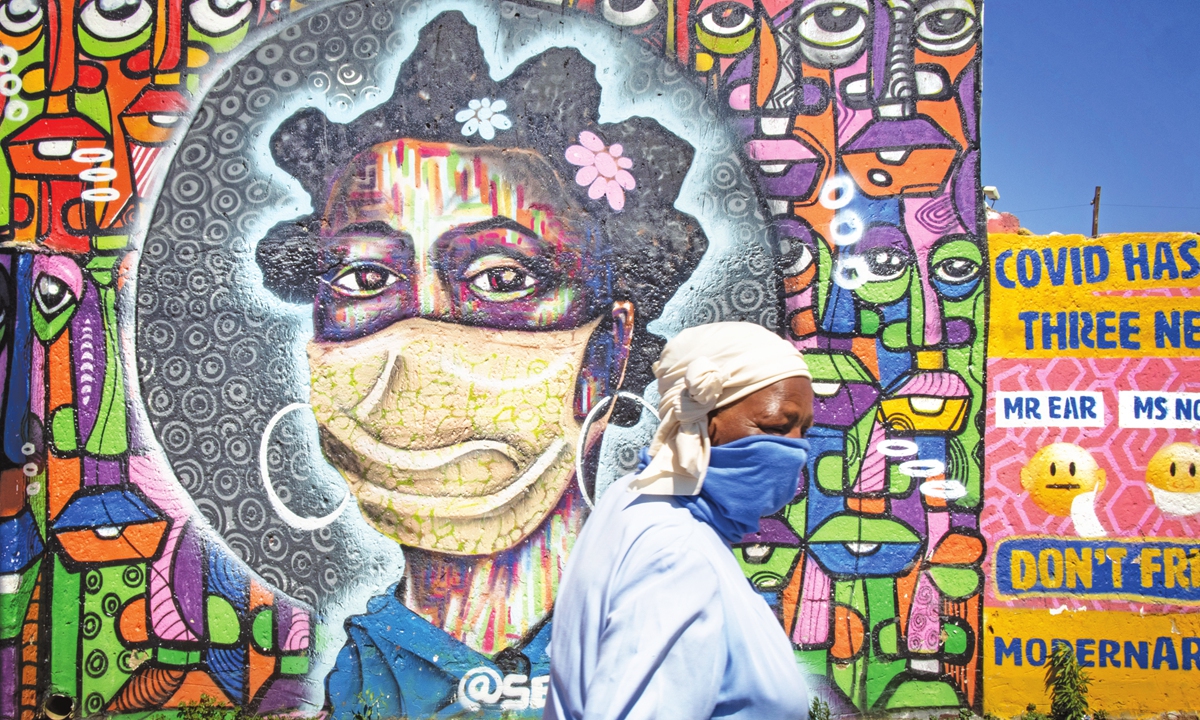
A Soweto resident walks in front of an informative graffiti art work educating local residents about the dangers of the coronavirus, Johannesburg, South Africa, 30 November 2021. Photo: IC
Soweto is full of gritty urban landscapes and alleys which evoke its history as one of apartheid's battlegrounds.
Yet there is also a gentler, folksier side to the vast Johannesburg township, and one that local entrepreneurs are portraying to curious tourists.
Every Sunday morning, Masike Lebele takes about 20 hikers for a walk in his childhood neighborhood, opening their eyes to a vista where countryside, abandoned gold mines, trash and deep-rooted folk beliefs all co-exist.
"This was my playground," said Lebele, a wiry 40-year-old who wore a leopard-print shirt and a floppy hat.
"I was adventurous as a kid," he said, his eyes sharp and wearing a smile. "We used to be little hunter-gatherers here."
The starting point for his walk is a "shebeen" - a local tavern set up in a house that belonged to his grandmother.
A recent hike on the 6-and-a-half-kilometer route began in the early morning.
For safety, a dozen friends accompanied the group.
Walkers crossed a street littered with rubbish and old tyres, where fresh fruit and snacks vendors had set up their stalls.
"This is where Soweto starts," said Lufuno Matidza, the elegant partner of the guide.
In the distance rose the silhouette of Johannesburg's skyscrapers - another world. A wasteland dotted with reeds descended toward a stream.
"Sangomas" - a Zulu word for traditional healers - "consider this first portion a holy land," said Masike, asking hikers to speak softly.
AFP
